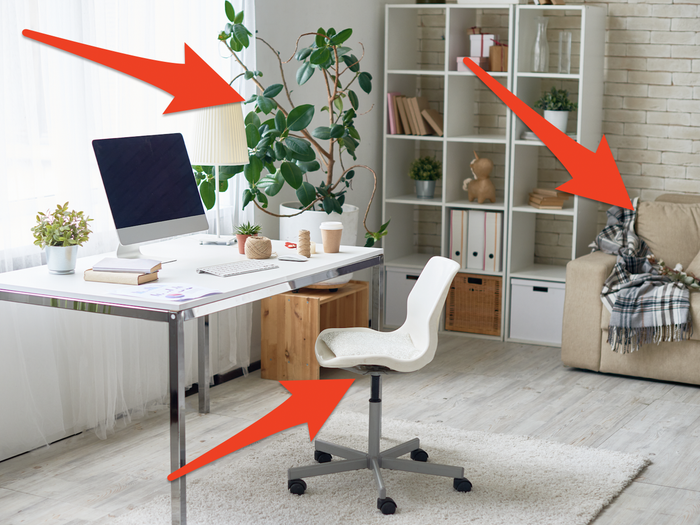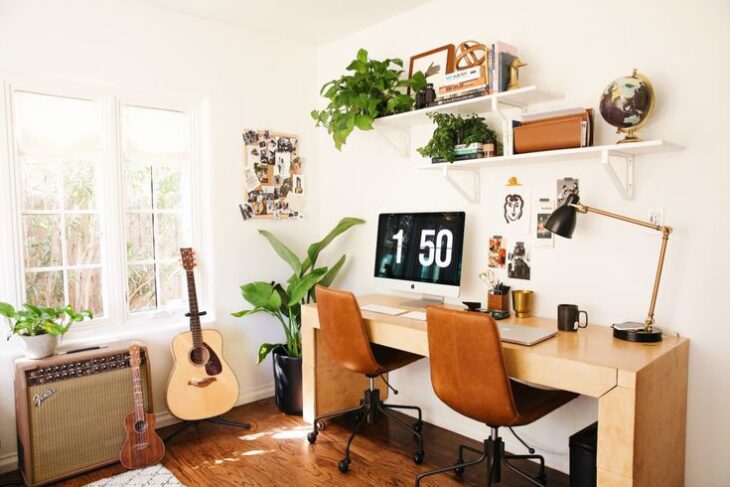Most of us have adapted reasonably well to our remote work environment – or at least, that’s what we tell ourselves. The reality is, unless you’ve already been working remotely for many years, this concept is still new to you, and you probably haven’t fully adapted to these circumstances.
Whether you realize it or not, your home office is affecting you in a multitude of ways, affecting not only your working habits but also your mental health, and possibly even your physical health. If you’re not careful, your imperfect home office could very well make you miserable.
How could this happen? How can you tell that it’s happening? And most importantly, what can you do about it?

Source: insider.com
The Problems With Your Home Office
These are the most common problems associated with home offices:
- Bad furniture. One of the most common culprits is bad furniture. When most people put together a home office, they neglect just how important this purchasing decision truly is; they get a cheap desk and a cheap chair and figure these items will be enough to get by. But over time, if your furniture doesn’t fit you right, or if it doesn’t offer sufficient support, it can cause a host of problems. You could end up losing focus and finding it harder to work productively. You could be uncomfortable and irritated all day. And over time, your poor posture could even result in chronic pain. According to BTOD.com, you should look for an online office furniture store with great reviews – and invest in some high-quality furniture that’s going to support you and last.
- Noise and distractions. Some people struggle in their home office environment because of persistent noise and distractions. If people are constantly popping into your office, you’re not going to be able to focus on your work. The same is true if you live near congested traffic areas or next to noisy neighbors. In some cases, a locking door can help you minimize distractions. In other cases, better sound proofing and sound absorption can help. But for some people, the only true path forward is moving to a quieter area.
- Stifling scenery. How do you feel when you look around your office? Do you feel uninspired, bored, or like you’re trapped here? If your scenery is stifling or if it feels oppressive, it needs to change. Most people benefit from having a window to look out of, or at least some nearby plants to make your surroundings feel more open and natural. You can also apply a fresh coat of paint to your office walls or hang artwork to make it more inviting.
- Disorganization and clutter. Some offices suffer from chronic disorganization and clutter. If your working environment is hard to navigate, or if you have papers all over your desk, it’s going to wreak havoc on your mind. Make sure you have some kind of organizational system in place to keep your items in physical order.
- Isolation. For many people, working from home is lonely. Even if you like the quiet, isolated time to focus on your work, over time, the isolation can get to you. That’s why it’s important to socialize regularly however you can, whether that’s starting an after-hours meet-up with your coworkers or just walking to the local park and talking to your neighbors.
Fortunately, most of these issues have easy solutions, and all it takes is a bit of proactive effort to maximize the value of your home office.

Source: thespruce.com
Are You Miserable Working From Home?
Are you genuinely miserable working from home? Is your home office truly in need of an upgrade?
It can be difficult to tell sometimes, especially if you have a stressful role that was difficult even before you started working from home. But these are some of the surest signs that you’re in need of a major change:
- Chronic aches and pains. Do you have chronic back pain or pain in your wrists and fingers? It could be a sign that you’re using the wrong furniture and equipment. If you’re starting to feel these aches and pains, don’t worry – it’s not too late. You may not be able to quickly reverse the damage you’ve already taken on, but you can prevent further damage from accumulating and relieve the strain you feel sitting and working at your desk.
- Mood changes or irritability. How do you feel throughout the day? Are you subject to quick or intense mood changes? Consider keeping a journal to document how your thoughts and feelings change throughout the day. If you’re especially irritable, without a straightforward explanation (like dealing with a loss of sleep), it could be because your working environment isn’t up to snuff.
- Difficulty sleeping. Poor sleep could be a sign of stress or anxiety negatively affecting you. If you’re experiencing chronic back pain or mood-related problems, sleep might be even more difficult for you. On top of that, sleep deprivation can make you feel more stressed and more irritable, resulting in a vicious cycle that self-perpetuates.
- Changes in productivity. Do you feel like you’ve gotten worse at your job since working from home, or are you not advancing as quickly as you’d like? It could be a sign that you’re having difficulty adjusting to this environment in general, but more commonly, it’s indicative of a problem with your remote work setup.
- Dread before going into work. You don’t have to love your job, but you should at least be able to tolerate it. Do you sit in bed at night hating the idea of waking up to go to work in the morning? If you genuinely dread starting work each day, that’s a sign that something needs to change.

Source: thisoldhouse.com
Sometimes, all it takes is a small investment of time and money to transform your office. With better furniture, a better layout, and greater personal comfort, many of your issues associated with working remotely will disappear. Start with one change and see if it makes a difference; then, proceed with more changes as necessary.
